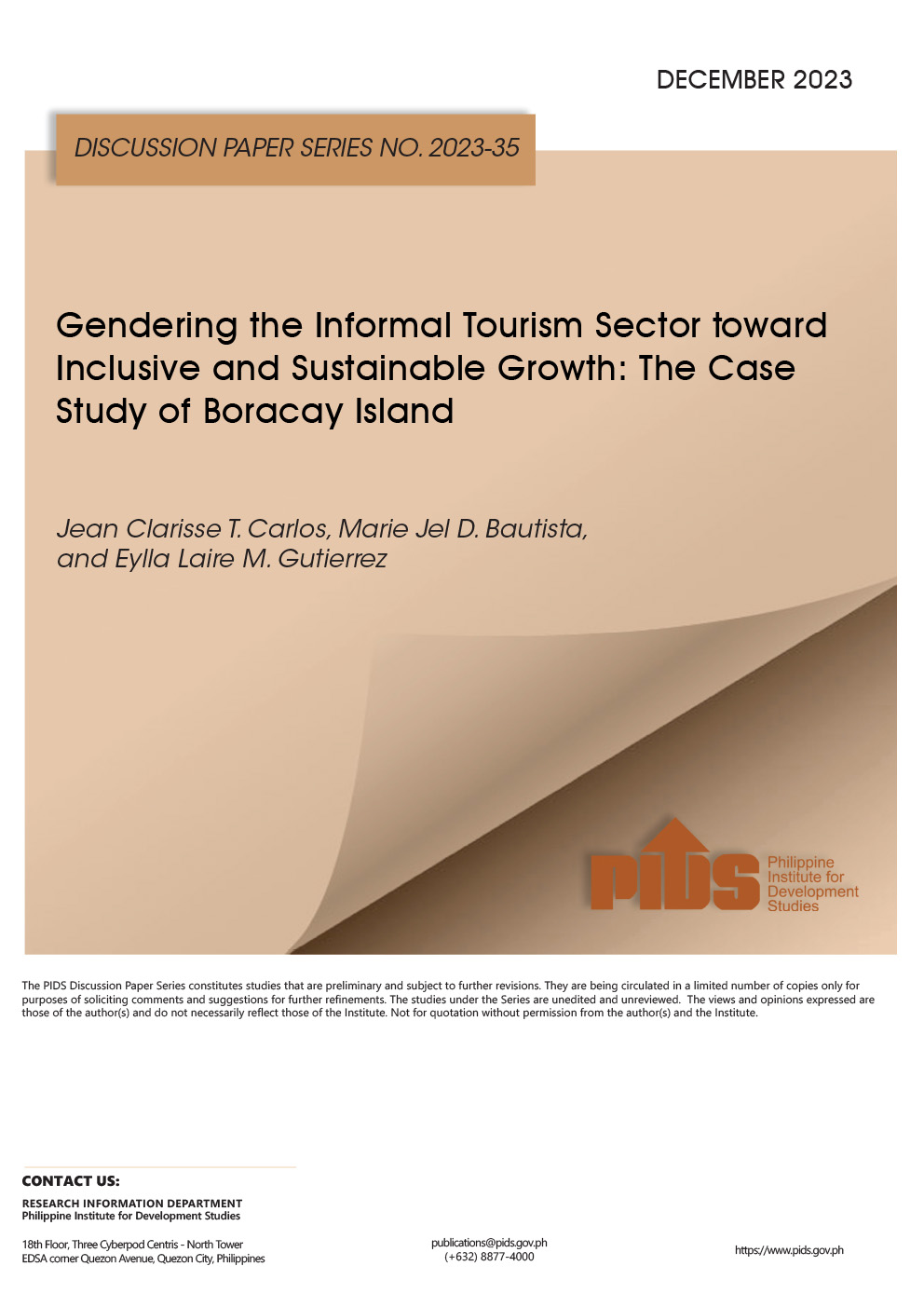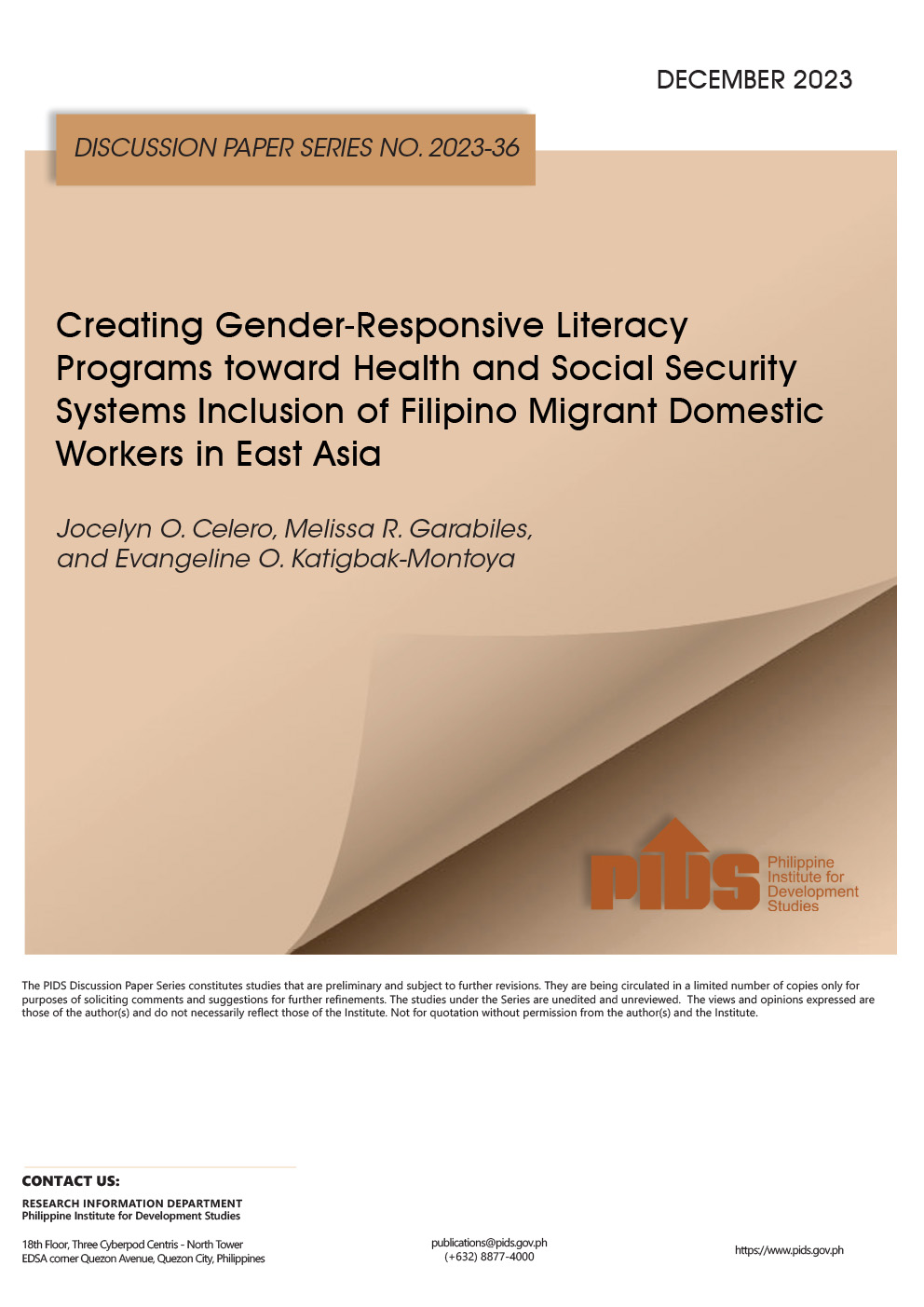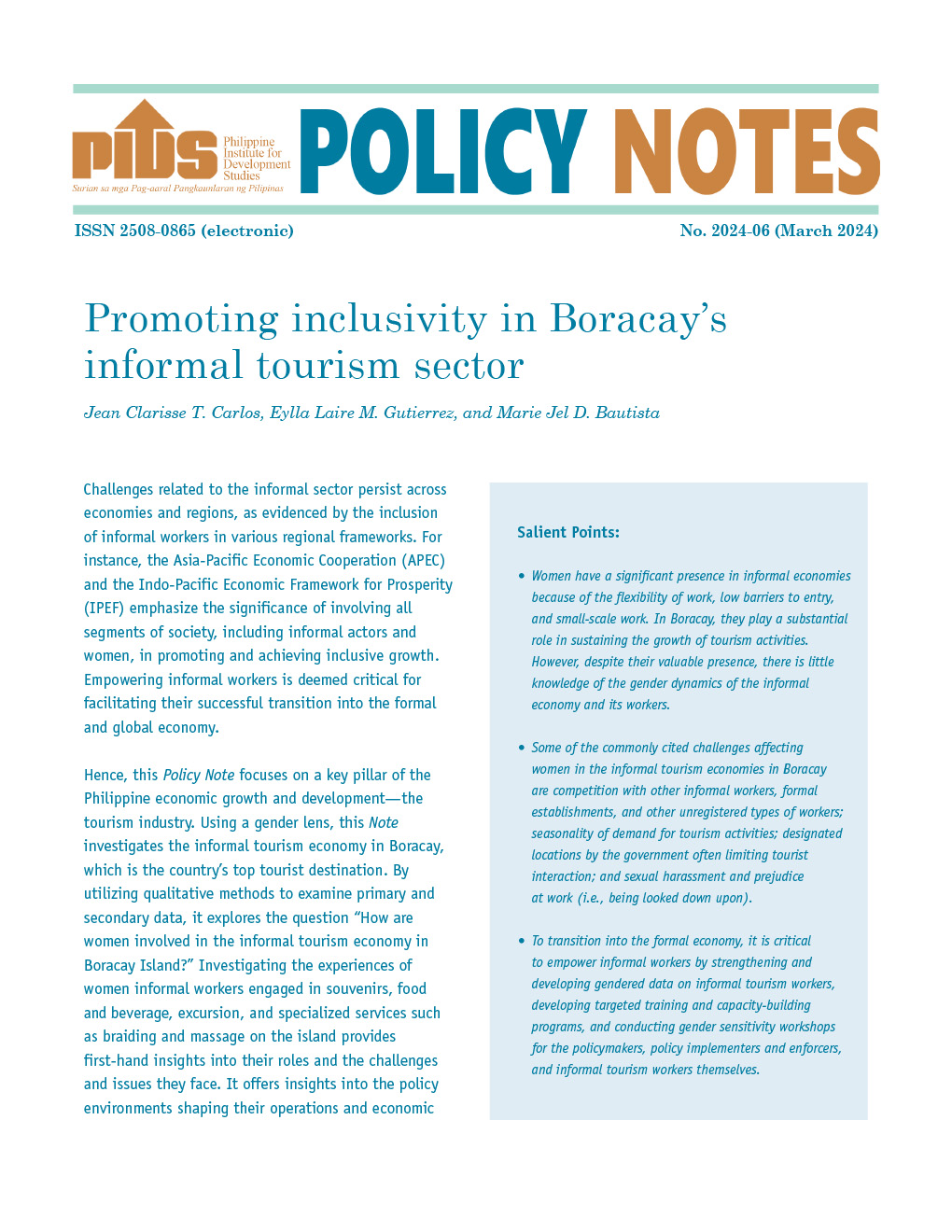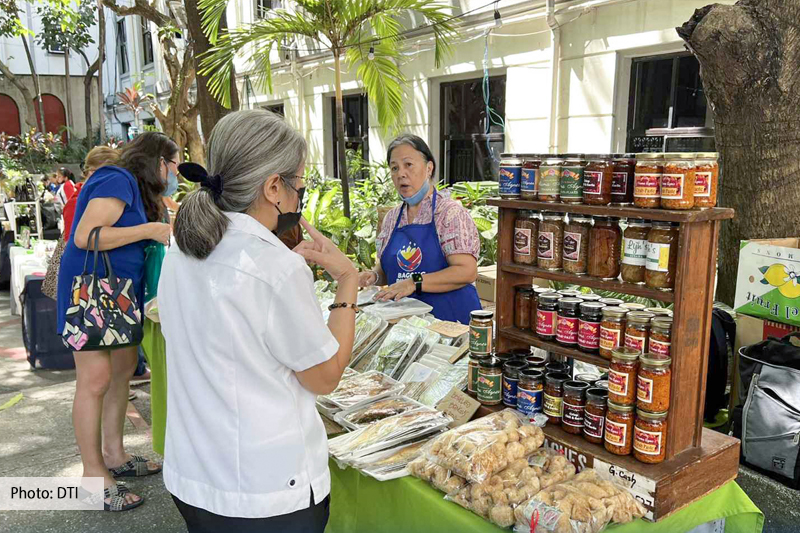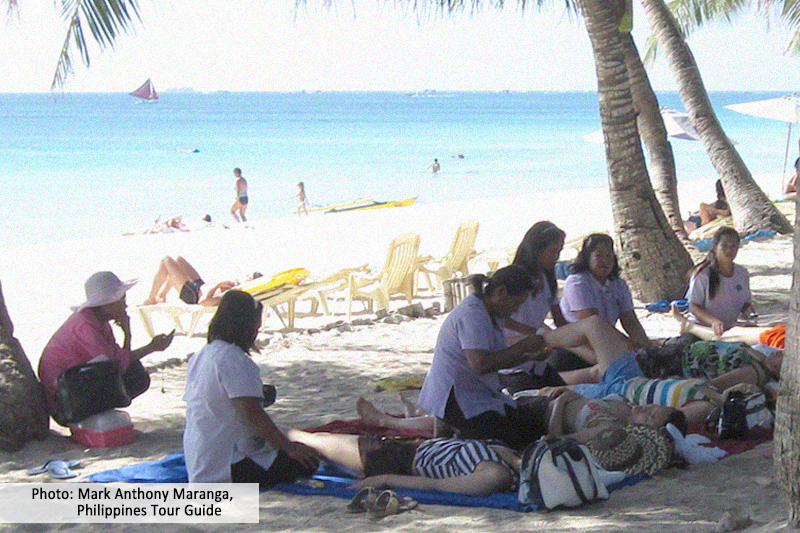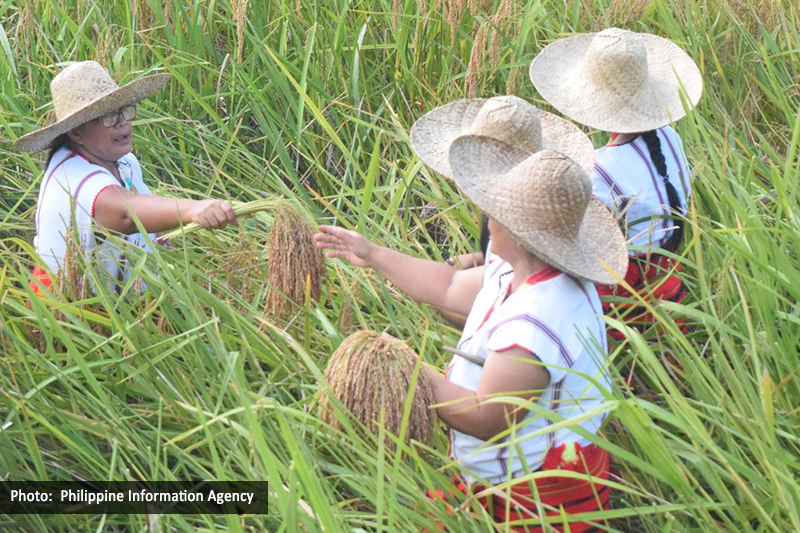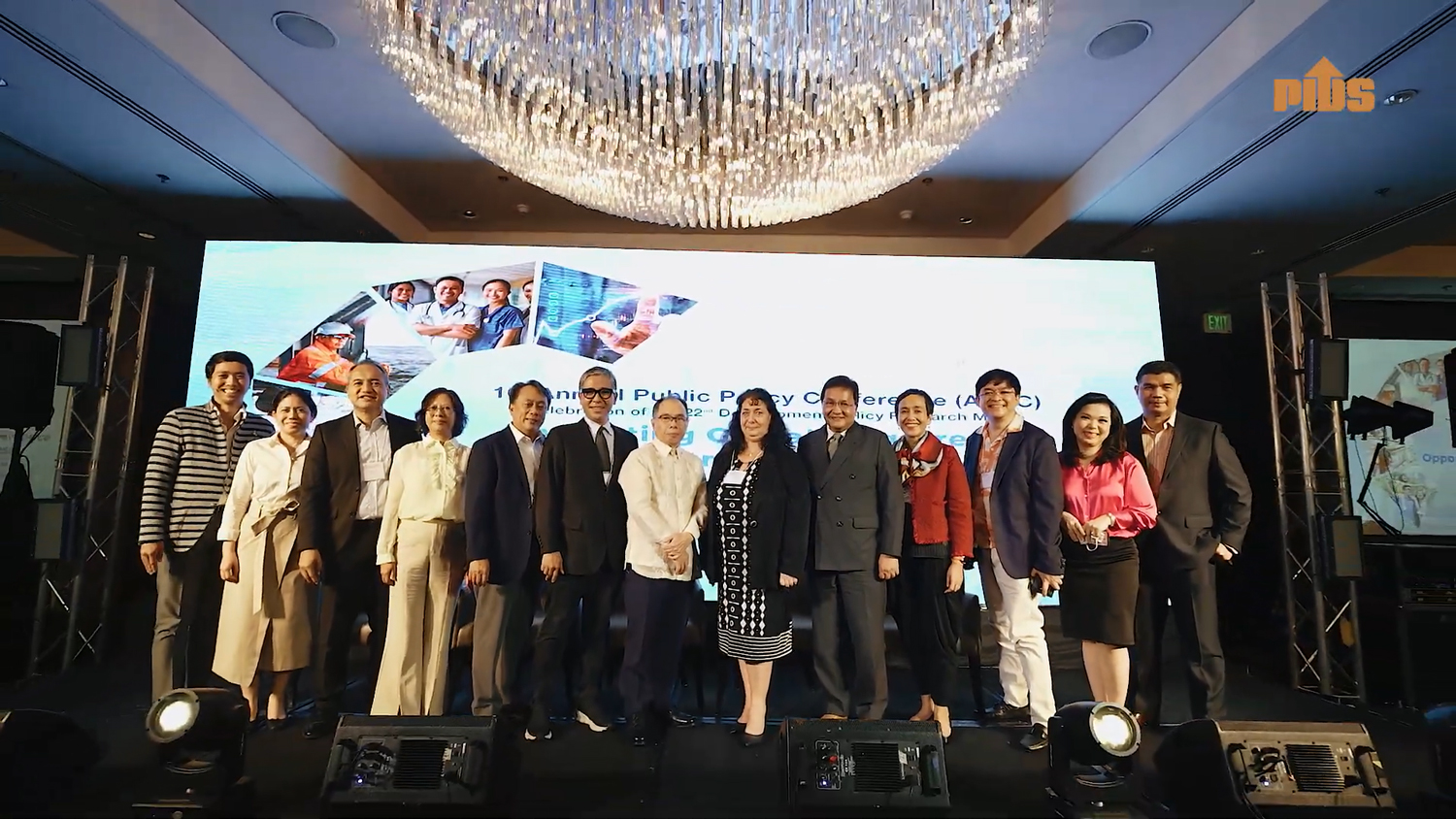Enhancing data collection, information campaigns, and support programs for women and making public transit safe for everyone will remove obstacles limiting women’s economic and social participation.
This was the recommendation highlighted in a recent knowledge-sharing webinar organized by the SocioEconomic Research Portal for the Philippines (SERP-P) project of state think tank Philippine Institute for Development Studies (PIDS).
The webinar featured studies produced by SERP-P Network partner-institutions focusing on women-led micro, small, and medium enterprises (MSMEs) and violence against women in public transit. It was held in support of National Women’s Month.
In the PIDS study “Analysis of the Cross-Border E-Commerce Environment for Philippine Women-led MSMEs”, Philippine APEC Study Center Network Project Development Officer Jean Clarisse Carlos, Department of Foreign Affairs Foreign Service Institute Foreign Affairs Research Specialist Jovito Jose Katigbak, and United Nations Office on Drugs and Crime Programme Assistant Jill Angeli Bacasmas conducted a SWOT analysis and mapped the stakeholders in the e-commerce landscape amid rapid digitalization and international trade developments.
Interviews with 10 government agencies and three e-commerce and export-oriented women’s advocacy groups and business associations revealed that while women-led MSMEs increased during the pandemic, they have either little to no information or limited access to government programs and resources designed for them. They also rely on experience and their own resources, mainly from family and relatives, to help run and sustain their business.
“The success of MSMEs is critical to the growth of all APEC economies, and cross-border e-commerce presents one area for potential growth. Global total e-commerce sales were estimated at USD 3.6 trillion in 2019, with much of the growth driven by the Asia-Pacific region… [but] women-led MSMEs face disproportionate and unnecessary challenges that prevent them from participating fully in the digital economy and cross-border e-commerce,” the authors said.
The study highlighted data on women in e-commerce, digital literacy, online safety and security, discrimination on online platforms, trade facilitation agreement, and logistics and customs duties to be among the weaknesses and threats to cross-border commerce for women-led MSMEs.
In a related study titled “Understanding E-Commerce Participation of Filipino Women Micro-entrepreneurs”, Regine Yvette Romero, research associate at the Asian Institute of Management-Rizalino S. Navarro Policy Center for Competitiveness, found that women entrepreneurs only “make do” to survive and operate their online businesses.
From her interviews with 17 women micro-entrepreneurs engaged in online selling from the National Capital Region and CALABARZON, Romero saw that they either used their own money or sourced their startup capital, equipment, and helpers from their family or immediate network to augment the household income or pursue a passion or hobby.
While they successfully set up their e-commerce shops using existing platforms like Lazada, Shopee, and selected social media networks, they face tight market competition, “joy miners” or bogus customers, “trolls” or haters online, and slow internet connectivity and technical problems. These serve as barriers to expanding their product selection, upgrading their equipment, increasing their labor force, and venturing into exporting.
For his part, Bangko Sentral ng Pilipinas (BSP) Deputy Director Mynard Bryan Mojica presented “Women’s Financial Inclusion: Insights from Demand-Side Surveys”, which probed the BSP’s 2021 Financial Inclusion Survey and the Asian Development Bank MSME survey results to gather gender-specific insights.
According to Mojica, the financial inclusion survey results show women leading in ownership of e-money accounts, cooperatives, and microfinance nongovernment organizations but lagging in bank ownership (10.2 million men compared to 7.9 million women). He added that women borrow and save more than men, but more men own investments and insurance.
He also highlighted the findings of the ADB MSME survey, which revealed that the gender dimension of business ownership is correlated with the business size.
“While microenterprises are predominantly owned by women, there are more men than women who own small and medium enterprises. Interestingly, most of these MSMEs are new businesses or are built from scratch,” Mojica said.
“Giving women better access to financial services and addressing knowledge gaps in managing financial resources and creating business will help them achieve autonomy. Narrowing the gender gap in financial inclusion will help the country’s economy as a whole, reduce income disparities, accelerate the evolution of businesses, and facilitate social inclusion,” he added.
Research Fellow Hazel Biana of the De La Salle University-Social Development Research Center presented the realities women commuters face in her study “Empowerment Modified Feminist Self-Defense: Violence Against Women in Transit in Metro Manila”.
Biana’s study showed that women face “normalized violence” such as chronic transit insecurity and victim-blaming, which place the burden of being safe on themselves “for lack of choice”. Women have adapted by traveling as a group, adjusting travel to a time perceived as “safer”, rushing when walking, bringing objects for defense, and calling out harassers and offenders, among others.
The four studies collectively called for addressing policy gaps resulting in women’s lack of access to finance and capacity-building programs designed for women. Stronger institutional systems are also crucial for better coordination among government agencies as well as responsive technology infrastructure and support for MSMEs and commuters alike.

